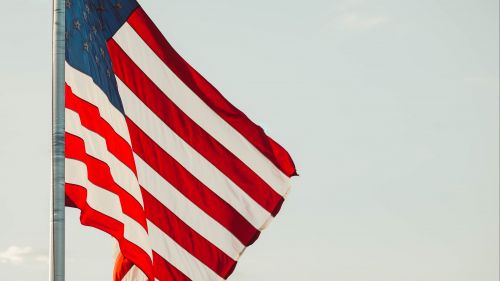Alliance of Democracies—from America First to American Led

Can an administration that up to this point has been belligerent towards traditional US democratic allies and has rejected many forms of multilateralism be able to turn the page and shift from "America First" to "American Led"?
"Make the world safe for democracy." When President Woodrow Wilson uttered this phrase in 1917, he was calling for the United States to join the European Allies in their struggle against the Central Powers. Regardless of Wilson's true motivations for entering the war, Wilson knew that appealing to a sense of common cause among democratic nations was necessary for the United States to achieve its foreign policy goals. That idea never left US foreign policy. From protection of the (largely) democratic "West" against the authoritarian (and communist) "East" during the Cold War, to the (at times quixotic) promotion of democracy abroad following the Berlin Wall’s collapse, US foreign policy frequently draws on appeals to create and protect democracy.
Enter Secretary of State Mike Pompeo. In a July 23 speech at the Nixon Presidential Library Secretary Pompeo called for the creation of an “alliance of democracies”:
“It’s about a complex new challenge that we’ve never faced before. The USSR was closed off from the free world. Communist China is already within our borders. So we can’t face this challenge alone. The United Nations, NATO, the G7 countries, the G20, our combined economic, diplomatic, and military power is surely enough to meet this challenge if we direct it clearly and with great courage. Maybe it’s time for a new grouping of like-minded nations, a new alliance of democracies.”
According to Pompeo, the Chinese Communist Party is a “new tyranny.” He sees this non-democratic regime as bent on undermining the US economy and challenging the “free world’s” way of life. Most notably, he asserts that the challenge can’t be met by the US alone. The US needs allies. Democratic allies.
Will Pompeo's appeal work? Can an administration that up to this point has been belligerent towards traditional US democratic allies and has rejected many forms of multilateralism be able to turn the page and shift from "America First" to "American Led"?
Yes, for three reasons.
First, alliances are ultimately "against, and only derivatively for, someone or something." In this case, the "against someone" is, as Pompeo made clear, the Chinese Communist Party. Such an appeal could be attractive to states such as India, Australia, South Korea, and Japan. Pompeo is banking on the idea that while the US, under an “America First” foreign policy, has been less than friendly, it has not, unlike China, been perceived as a direct economic and military threat. Economically, China is a competitor to these countries. Indeed, that was a motivation for creating the Trans-Pacific Partnership. Following the US withdrawal from those negotiations, the other participants soldiered on. Militarily, the debate over China’s "peaceful rise" appears to be over. From enacting a fait accompli at the India-China Line of Control, maneuvering in the South China Sea, and cracking down on Hong Kong, the Chinese government seems bent on revising the regional status quo while the US and other countries are distracted by COVID-19.
Second, even under the best of circumstances, forming alliances is more about striking a bargain than sharing worldviews. Time and time again, the United States has turned to offers of economic “goodies” and diplomatic “quid pro quos” to create coalitions of willing states. Recall how the coalition that followed the United States into the Iraq War was referred to as the “coalition of the billing.” Such enticements will surely be in the offering as a means of creating this new coalition.
Third, Pompeo’s “alliance of democracy” will not be formed whole cloth. Institutions already exist that can serve as the foundation for the arrangement. Most notable is the G7, comprised of the United States, the United Kingdom, Canada, Italy, Japan, Germany, and France. While President Trump began his presidency showing disdain for the institution, his administration has been actively floating proposals to expand the institution to a G7+, perhaps into a “Group of 11” with Australia, India, Russia (questionably democratic, at best), and South Korea.
Of course, making Pompeo’s “alliance of democracy” work requires not only forming the alliance, but positioning its members to avoid China “wedging” them out of the arrangement. In other words, it could require decoupling from the Chinese economy. But it seems that the administration is laying the groundwork for such a decoupling. Consider the remarks by Attorney General William Barr during a recent address at the Ford Presidential Library: “the ultimate ambition of China’s rulers isn’t to trade with the United States. It is to raid the United States. If you are an American business leader, appeasing the PRC may bring short-term rewards. But in the end, the PRC’s goal is to replace you.” When combined with the ongoing “trade war” between the US and China, such a decoupling is more than plausible.
While it remains unclear (indeed, it’s looking increasingly unlikely) whether Trump will be reelected, one could see this alliance serving as the cornerstone of a second-term Trump foreign policy. But continuing to be “tough on China” also appears to be part of a hypothetical Biden administration. Hence, this alliance could even be a core component of a Biden presidency. In the end, creating an “American Led” alliance of democracies is quite plausible going forward despite over three years of “America First” rhetoric.

